As a relatively new and rapidly evolving digital channel, social media is subject to considerable debate among marketers, especially regarding ROI.
Undoubtedly, however, social media is becoming more effective in connecting businesses with prospects and customers. It is also useful for gaining user demographic insight, keeping current with trending topics, and addressing customer wants and needs.
With over one billion users, Facebook is the world's largest social network. It alone presents a robust opportunity for your brand to reach both potential and current customers. If used correctly, Facebook increases brand awareness and advocacy, lowers service costs, and drives customer loyalty and incremental sales.
To achieve those goals, you need to carry out two primary activities:
- Grow your Facebook community.
- Engage your Facebook community.
1. Facebook Community Growth
Fan acquisition campaigns are the best way to rapidly grow your Facebook community. Those campaign types vary, but they are consistent in that they must inspire participation via compelling value propositions and spark awareness via targeted paid social media.
Value Propositions Within Social Media
Value propositions are the incentives, offers, or experiences that will prompt users to "like" your page and to share with others. It is a key component that can ultimately determine the success of your social campaign.
Among the types of value propositions that have proven successful are offers, causes, and content gates,
Offers: Facebook's "offers" include both free and discounted deals. When polled, most Facebook users say they "like" brands in order to receive coupons. Offers not only increase engagement but also sales, because the discounts encourage purchases that may not have been made otherwise.
Kohl's provides an excellent example below with its coupon for an additional 15% off merchandise.
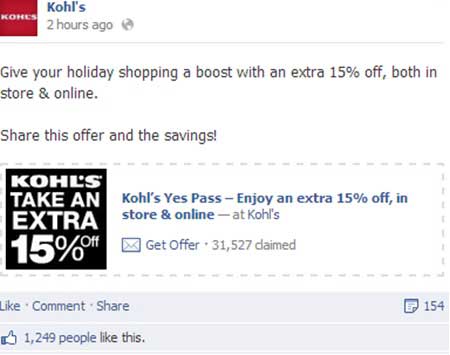
Of course, a free offer is always appealing to every demographic. As TGI Friday's demonstrates, sometimes all it takes is a free hamburger and a couple of days to see impressive results—within one weekend, it accumulated 500,000 additional fans on the social network.
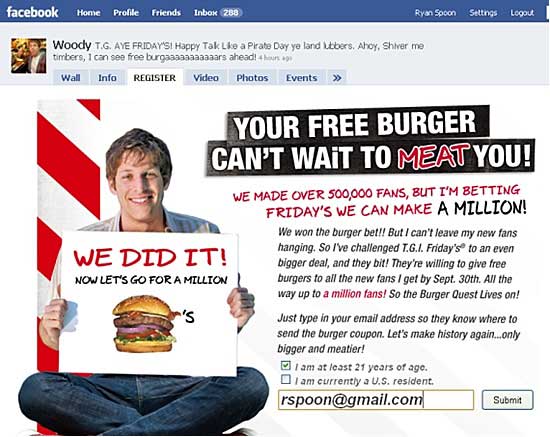
Causes: Ideal for stimulating organic friend-to-friend sharing, donation-based causes are successful because the entry barrier is low and the return can be extremely high.
Olga Intimates, for example, collaborated with ZOG Digital's Creative Studio to honor Breast Cancer Awareness month. A "Virtual Quilt" Facebook application was created, turning every "like" into a dedicated quilt square and money donated to charity by the brand. The campaing resulted in a 400% increase in fan base in less than one month.
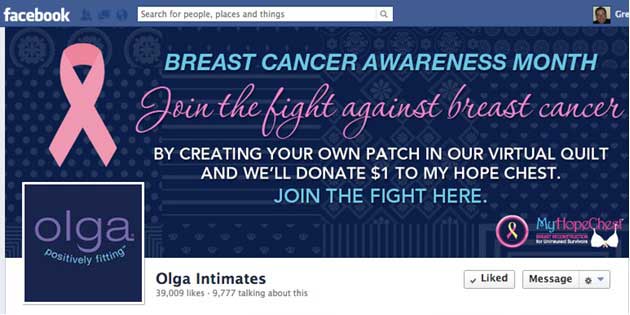
Content gates: If your brand already has compelling content—images, videos, or other experiences—a "like" is simple action for a user to take to gain access. A particularly innovative example is "The Society of Good Taste" campaign run by Grey Poupon. It required that Facebook users apply to be eligible to "like" their page, and it put those users pages through a screening "taste test." The campaign greatly increased engagement, supporting the idea that "exclusivity" is something brands should consider using.
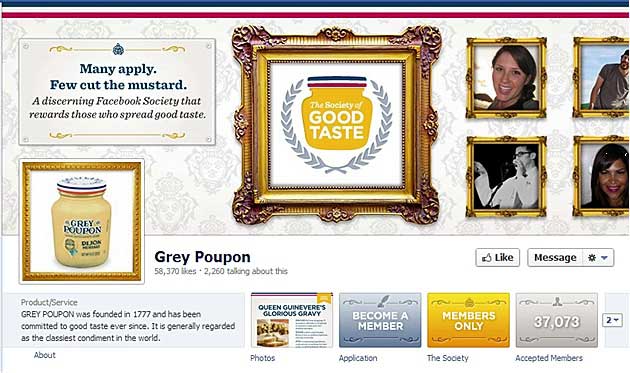
Paid Media for Social Campaigns
For social, the maxim "if you build it, they will come" should be amended to read "if you build it—and spark awareness with paid social media—they will come."
In particular, Facebook advertising is effective in reaching the right type of prospects because it segments consumers into niche audiences. As Facebook's ad products continue to evolve, the quality of its user data continues to grow, allowing more targetable and effective campaigns.
You have a choice of four major types of ad units (as of November 2012): standard ads, like ads, page post ads, and Sponsored Stories.
Standard ads: Traditional ad units found on the right side of the page, these ads' effectiveness is debatable. Although they are not often implemented for a fan-acquisition campaign, they can have value in combination with the other ad types listed here.
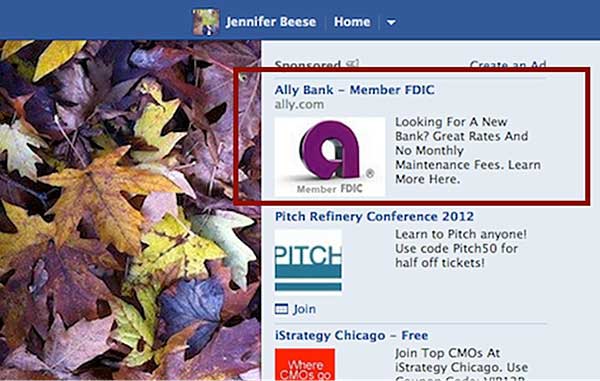
Like ads: Similar to standard ads, but designed specifically to drive traffic to a Facebook page and increase likes, these ads achieve increased brand visibility.
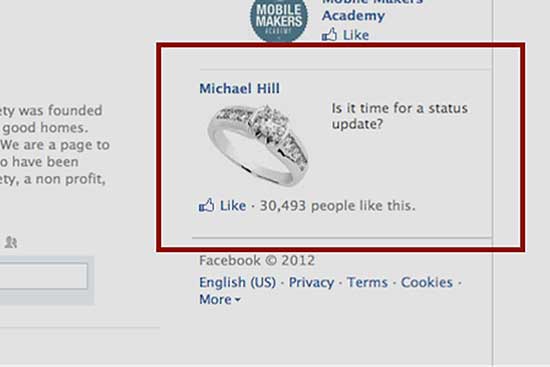
Page post ads: With this option, you can take one of your posts and boost it into an ad unit. This is an interesting product to both increase "likes" and drive engagement with fans. Nonfans will have the ability to like your page directly from the ad, while current fans will see sponsored posts.
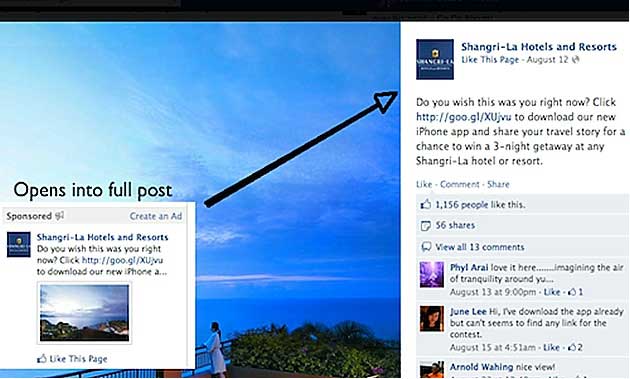
Sponsored Stories: Sponsored Stories turn your fan base interactions into ad units. They are effective when for increasing visibility, especially in light of recent modifications to the Facebook algorithm. Many types of actions can be turned into stories: page likes, post likes, comments, shares, and more.
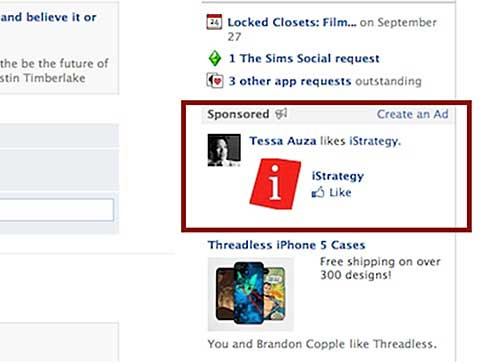
Alternative Paid Social Ad Options
Along with the four basic types already listed, three other up-and-coming ad units are worth considering: mobile ads, Sponsored Results ads, and Facebook Exchange.
Mobile growth has expanded enormously, with 14% of Facebook's revenue in 3Q12 having come from mobile, and 680 million monthly active users using Facebook mobile products via their smartphones and tablets as of December 2012. Click-through rates are 23 times higher on mobile than on desktop ads, and mobile advertising allows businesses to specify details such as the device type in which the ad should appear.
Sponsored Results ads allow companies to place ads in the typehead search results so that they will appear before organic results. You are able to target exact pages and search entries (such as competitors) with this ad unit.
Facebook Exchange, a network-specific form of retargeting, has great potential as well in that marketers can target audiences based on behavior and interests, and bid in real-time, helping brands increase visibility and gain customer insight.
2. Facebook Community Engagement
At ZOG Digital, we define engagement as the quantifiable demonstration—including "likes," comments, and shares—that generate the attention of your community.
We focus on attention, because it is the fundamental precursor to preference, advocacy, and purchase; moreover, aside from doing secondary research, these types of clicks are a good way to validate that engagement.
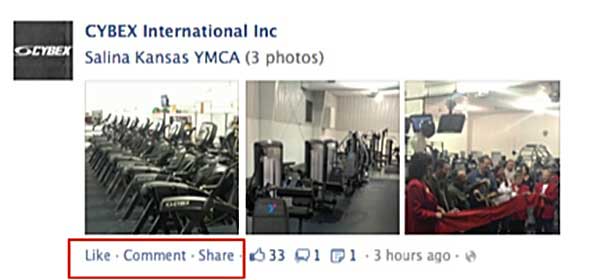
Another critical component of engagement is friend-to-friend organic sharing. On Facebook, that activity happens overwhelmingly within posts in the newsfeed. To stimulate engagement, therefore, your brand needs to create ongoing timely and compelling post content.
What is the best way to create post content that will gain the most "likes," comments, and shares? We've analyzed brand and social network content and categorized the most popular posts into four types of content:
- Topical
- Visual
- Expressive
- Target-specific
By integrating such posts into your posting calendar, you will improve the likelihood of increasing community engagement and will ultimately increase consumer-generated referrals and sales.
Topical content: People tend to share content that is relevant to current events. By monitoring and "newsjacking" events relevant to your audience, you can take advantage of the popularity of these topics to increase engagement.
Oreo did just that in its "Daily Twist" campaign by incorporating topical content into images of it product (The Mars Rover Landing is shown below). It not only drummed up social media mentions and engagement but also garnered significant news coverage.
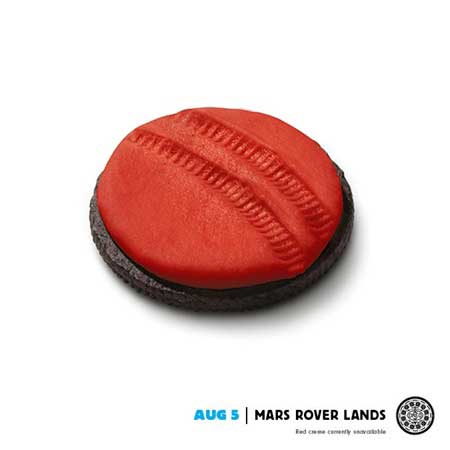
Visual content: Social continues to evolve into a more visual medium, as illustrated by the rise of sites like Pinterest and Instagram. Images garner higher engagement rates than other forms of posts because of the instantaneous nature of understanding and gratification via images.
In fact, 44% of users are more likely to engage with brands on Facebook if they post pictures, according to Performics. High-quality and high-resolution images in particular further raise engagement. The difference in post engagement with images vs. without is illustrated by WaterPik.
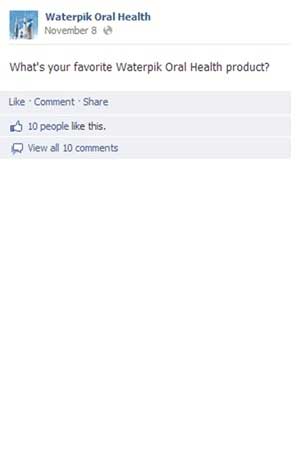
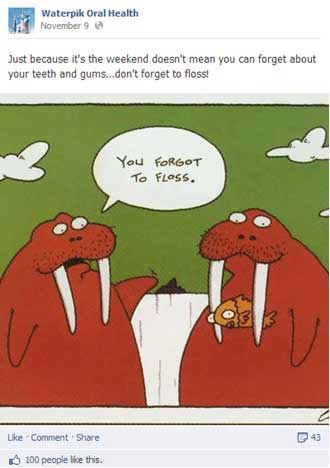
Expressive content: Expressive content refers to content that demonstrates a certain persona or point of view. For example, a brand looking to demonstrate its charitable tendencies may check in at a volunteer event or share its philanthropic donations via status updates and pictures.
This approach is best used when you understand the positive attributes of your brand and you're able to express those through specific posts. The Humane Society of the United States, https://www.humanesociety.org/ for instance, sees all current events in terms of animals and accordingly posted the following image of its Animal Rescue Team during a hurricane:
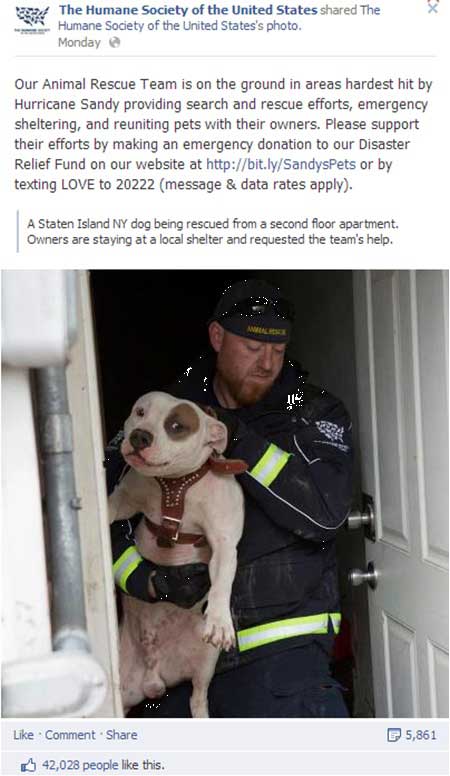
Target-specific content: Target-specific content is content that your audience engages with most. To identify what your target group finds most interesting, you have to use Facebook insights and categorize the recurring topics and themes for the posts that tend to get the most engagement.
For example, Healthcare provider TriWest discovered that the most engagement on its page occurred within posts acknowledging the contribution of military members to the United States.
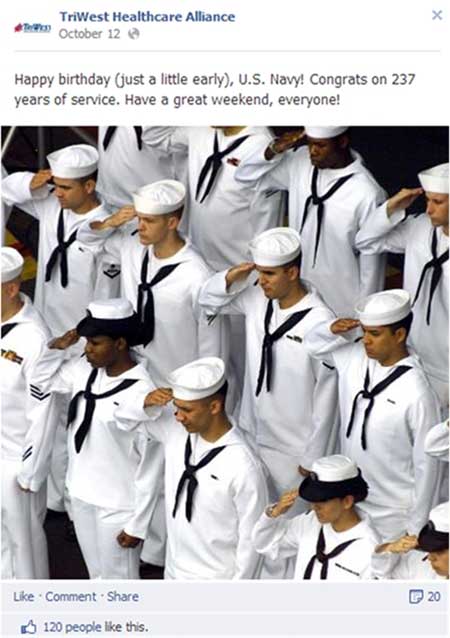
Summing Up
To increase the value of your Facebook community, you need to grow and engage your fan base, which is initially done by way of compelling value propositions: Facebook offers, causes, and content gates.
Those efforts are then accelerated by targeted paid social media campaigns, including standard ads, "like" ads, page post ads, and sponsored stories.
Once you've accumulated fans, you'll want to keep their interest by producing timely, intriguing content that inspires interaction by way of "likes," comments, and shares.
Incorporated into an optimized Facebook strategy, those tactics can ultimately increase brand awareness, site traffic, customer loyalty, and sales.
If you have specific questions or would like to learn more about our social campaign case studies, strategies, and optimization programs, reach out to us. See our contact info in the author bio.




